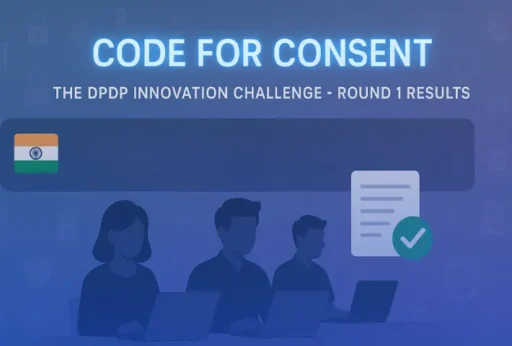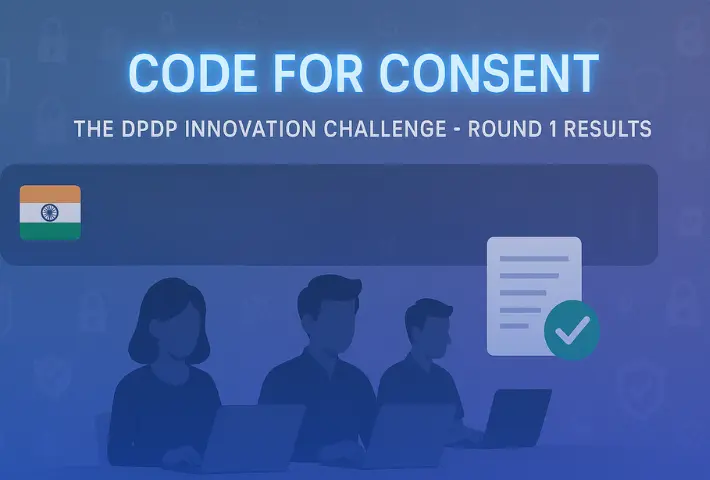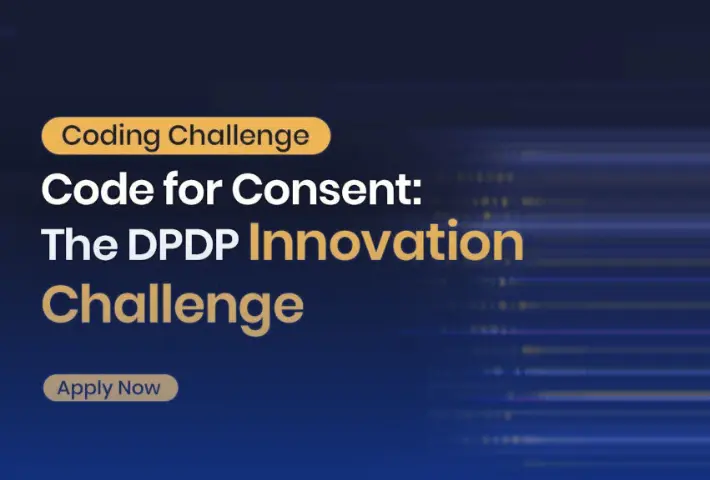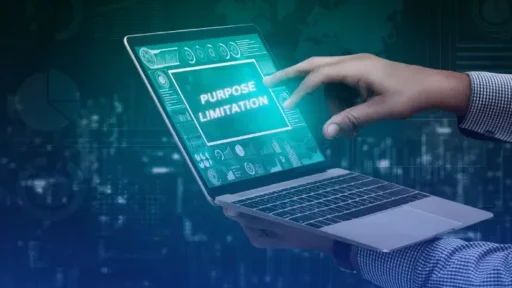New Delhi, July 28, 2025 – In a significant milestone toward the development of a digital ecosystem grounded in privacy, the National e-Governance Division (NeGD), a part of the Ministry of Electronics and IT (MeitY), and in collaboration with the MeitY Startup Hub (MSH), has released the shortlist of participants who have made it to Round 2 of the ‘Code for Consent: The DPDP Innovation Challenge.’
The purpose of this visionary initiative is to stimulate the development of a digital public infrastructure that eases and scales compliance with the Digital Personal Data Protection Act, 2023 (DPDPA). It lays the groundwork towards a future in which data dignity becomes the default, through simplifying privacy-by-design for organizations of any size, regardless of whether they’re startups or large corporations. To accomplish this vision, a national open innovation award has been launched to call upon organizations who are passionate to submit open-source tools to promote advances in trust, transparency, and empowerment for users.
Round 1 Shortlisted Participants
Following rigorous evaluation by a jury of experts, six promising technology players have been selected to proceed to the Round 2 of the “Code for Consent” challenge:
- Jio Platforms Limited
- Baldor Technologies Pvt. Ltd.
- VERTEXTECH LABS PRIVATE LTD (Redacto)
- Zoop (Quagga Tech Pvt. Ltd.)
- Concur – Consent Manager
- Aurelion Future Forge Pvt. Ltd.
Why This Code for Consent Challenge Matters
The “Code for Consent” challenge is more than a competitive innovation platform. It is part of a larger national mission. The mission aims to operationalize the DPDP Act by building a Digital Consent Infrastructure. This infrastructure allows people to exercise their rights related to personal data in a straightforward, secure, and transparent fashion.
The initiative supports the emergence of Consent Managers. It also helps develop Data Fiduciaries and Data Principals as described in the DPDPA. The government aims to foster trust and accountability in India’s rapidly digitizing economy.
India is now leading by example. It is laying the foundations of a Digital Public Infrastructure (DPI) for data protection. This DPI is comparable in ambition to UPI (Unified Payments Interface) in digital payments. It is also similar to Aadhaar in digital identity terms. This infrastructure will facilitate that:
- Citizens can consent, change, or withdraw paid consent in a clear and legally supported manner.
- Businesses are able to build compliant data practices without significant regulatory overhead.
- Governance is data-enabled yet citizen-centric.
Towards a Privacy-First Digital India
The DPDPA, passed in 2023, represents an inflection point in India’s legal and technological odyssey towards data sovereignty. It lays out the rights of individuals over their personal data. It imposes clear obligations on entities that collect and process such data.
The “Code for Consent” challenge operationalizes this intent. It does so by converting policy into deployable technology. The technology is developed by Indian innovators. These innovators understand the local context, languages, and digital behaviors.
From banking to healthcare, e-commerce to edtech, the resulting tools are expected to serve as plug-and-play modules. These tools are for organizations looking to comply with the DPDP law. They will also contribute to the broader DPI layer for trust and data governance.
A New Era for Indian Innovation
This innovation challenge is a testament to India’s ability to build techno-legal solutions at scale, setting global benchmarks in data empowerment and participatory digital governance.
NeGD and MeitY congratulate the selected innovators and reaffirm their commitment to nurture a responsible, rights-driven data ecosystem. As Round 2 begins, the nation eagerly awaits solutions that innovators will create not only in India but also for India—and potentially for the world.
The organizers will share further updates and progress reports from Round 2 in due course.








